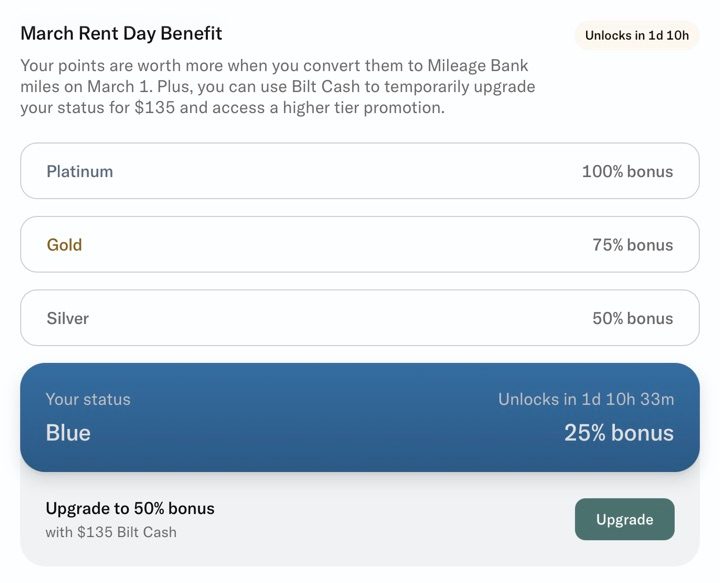Shutterstock / Urbanscape
Mortgage networks are evolving to ensure they meet the needs of a changing mortgage landscape. The adaptations reflect new regulations and rising compliance costs but are also in response to the rapid shift towards digital delivery services.
The number of networks has remained fairly static in recent years, with relatively little consolidation in this market. Although many networks are developing their proposition, often to appeal to specific segments of the broker market, they all offer the same core benefit of taking on the regulatory and compliance responsibilities for authorised representative (AR) brokers.
Sesame Bankhall Group chief operating officer Richard Howells says this compliance has historically been the raison d’être of networks. But it is far more than a box-ticking exercise to ensure brokers keep on the right side of the regulator.
This should be a relationship of equals with both sides benefiting
“Networks such as ours can help firms in many areas,” says Howells. “Keeping a business safe is more than just ensuring it complies with financial regulations.
We also work with firms on a broader range of topics, including GDPR and best practice on health and safety.”
He adds: “This focus on compliance is changing due to a range of factors, such as rising trading and regulatory costs. Broker firms are having to cope with a huge amount of business change at a time when the market is also very busy. Business owners are time poor, so even if they know what steps they want to take they often don’t have the time to execute on it.”
Howells says this is where the relationship between a network and its members is evolving: from one where the network primarily provided a compliance-led service to more of a “business partnership” with member firms.
The buying power of a network often means an adviser can be financially better off
“We are finding that member firms are asking us for advice on everything from HR and the contracts they need to put in place with staff to technology and marketing. As a result our group is broadening its proposition as the needs of advice firms grow.”
Sesame isn’t the only network to offer a wider ‘support umbrella’ to advisers.
Alongside compliance, networks manage the relationship between lenders and other service providers, offer training, help brokers to connect with general and specialist lenders as well as other advisers, and in some cases offer finance options to aid business development and expansion.
Package of benefits
Networks point out that this package of benefits enables brokers to focus their resources on what they do best: advising clients and growing their advice business. HL Partnership (HLP), the largest privately owned mortgage market network, says its member firms benefit from being part of a larger group.
HLP commercial director Neil Hoare says: “Membership gives them access to colleagues and network specialists to share ideas and help develop themselves, their firms and their staff. We promote a culture of best practice by promoting positive input from members and sharing our joint experience in sales, marketing, customer acquisition, maintenance and retention.
Culture is very important in networks and those with a good culture will continue to prosper
“Meanwhile our collective buying power helps spread the costs, especially in relation to technology investment, increasing regulation and capital adequacy.”
HLP says it actively invests in members’ business expansion plans through its specialist development team. In some cases this includes interest-free funding.
Connect for Intermediaries chief executive Liz Syms points out the common perception across the industry that it is more cost-effective to be authorised by the Financial Conduct Authority directly than to pay a network share.
However, she says, this is not always the case.
“Most networks include within their fees things like professional indemnity cover, FCA fees and software subscriptions.
It comes down to what the network can offer in terms of the financial package, innovation to add value, and general support to its members
“The buying power of a network for things like software costs, or to negotiate higher lender commissions, often means an adviser can be financially better off in a network.”
Syms adds that, for new advisers setting up their own business, or leaving an existing one, getting the required FCA permissions can be a “lengthy and costly process” with ongoing regulatory responsibilities.
For this reason, networks can be particularly attractive to newer or smaller companies.
When it comes to fees, most networks take a percentage of any procuration fee. In some cases this may be on a sliding scale depending on business volumes.
Greater technology adoption will make most networks considerably more valuable to lenders than mortgage clubs
We Are Money co-founder and adviser Jonathan Burridge says AR brokers are seeking a ‘symbiotic’ relationship when joining a network.
“It should be a relationship of equals with both sides benefiting,” he says. “Cost is a consideration, but it’s important to look beyond fees to determine if you’re getting value for money.”
Burridge adds that cost isn’t just about the share of any procuration fee.
“Read the contract and pay attention to data-sharing roles and termination clauses. It’s important to make sure you’re clear about both your firm’s and the network’s rights and obligations.”
Member firms are asking us for advice on everything from HR and the contracts they need to put in place with staff to technology and marketing
Moving network can be painful and expensive, he says, so it pays to get the decision right first time.
Burridge adds that some larger corporate networks tend to be “risk adverse”, which may mean advisers end up with a more restricted environment when it comes to panel lenders.
“This may be great for a generalist firm, whose clients are mainly covered by mainstream lending, or even for a newly formed business that needs the structure and guidance that larger networks provide.”
But this may not be suitable for all ARs, adds Burridge.
Lenders are recognising the value of networks that offer a single sales process
From a broker’s point of view, according to Vantage Finance managing director Lucy Barrett, cost is a key aspect of any network’s proposition.
“Brokers work hard to build their business and want to maximise their retained earnings as much as they can.”
However, it is the “softer touches” and add-on services that can really benefit members and help them grow their business, she adds.
Specialist finance
Although Vantage Finance is a master broker and directly authorised by the FCA, the company works with networks to support their members with specialist finance applications.
The networks that seem to have the most membership ‘buy-in’, says Barrett, tend to be those where members feel supported in a number of ways.
“Some networks are more inclusive than others, which is part of the appeal to those firms that want to share ideas, attend events and feel part of something,” says Barrett.
The network allows members with the right skills to advise on products such as commercial, bridging and second charges without the need to refer to a third party
“Others offer a service of regulatory support and that’s all the brokerage needs. Like anything, it’s a personal choice to be made by the firm’s principals.”
Burridge says it is important to look at other firms in any prospective network to assess if they reflect the broker’s current business model — or the one they hope to build.
He also suggests speaking to lenders’ business development managers.
“They are exposed to many networks and can be a good source of information on a network’s reputation, which will impact your business.”
A number of brokers say what they really value in a network is access to specialist lenders.
Mortgage broker Finanze’s managing director, Alastair Hoyne, says: “When setting up my own firm I spoke to a large number of networks. Ultimately, I wanted a firm that had a high degree of support for specialist commercial finance, namely bridging and commercial.”
From a regulatory perspective, there is increasing evidence of a greater level of security and consistency for lenders in the network/lender relationship
Hoyne says the number of networks offering this service was “surprisingly small”, but eventually the firm joined Connect for Intermediaries.
“It was slightly cheaper in terms of onboarding and training costs, and ultimately took a far lower share of my procuration fees, due to a tiered system based on billing.
“It also provides an extensive list of panel lenders, but most importantly the ability to go off panel and sign direct agreements with its approval. This has allowed me to work efficiently within the network, taking into account my own nuanced process alongside its compliance requirements.”
Syms says Connect for Intermediaries positions itself as a more specialist network.
“The network allows members with the right skills to advise on products such as commercial, bridging and second charges without the need to refer to a third party.”
Digital service
Most industry experts expect the network proposition to continue to evolve — particularly in relation to technology and data.
Howell says: “One of the areas where we are seeing proposition developments is in helping advice firms to scale up their digital service delivery. The majority of firms operate in their local area, but this is starting to change with the onset of more customers communications via Teams and Zoom.”
He adds that many firms that are network members have a limited number of advisers, so the only way to scale up is to introduce technology and identify elements of the advice process that can be automated.
Being part of a network can leverage the big data advantage its advisers have, he says, and this is where Howells believes the market is heading.
I spoke to a large number of networks. Ultimately, I wanted a firm that had a high degree of support for specialist commercial finance, namely bridging and commercial
“Advisers need to consider what they can do with the data at their fingertips, and one answer is to supply more services. In the same way that Sky is trying to become the customer’s platform of choice for leisure and entertainment, is there an opportunity for advisers to do the same with all things money related?”
Hoare agrees that technology will continue to be a central part of a network’s proposition and may lead some directly authorised (DA) advisers to reconsider AR and network options.
“The role technology will continue to play will see a radical reappraisal of the way in which mortgage business is conducted.”
Hoare points out that the need for DAs to keep up with new technology, such as professional CRM software linked to both sourcing engines and lenders, may put pressure on these DAs to look again at other business models.
“Lenders are recognising the value of networks that offer a single sales process,” says Hoare.
Make sure you’re clear about both your firm’s and the network’s rights and obligations
“From a regulatory perspective, there is increasing evidence of a greater level of security and consistency for lenders in the network/lender relationship rather than via a direct route.
“Greater technology adoption will make most networks considerably more valuable to lenders than mortgage clubs, which cannot match our ability to integrate collectively with lenders.”
Changing dynamics
Although there has been relatively little consolidation in this market in recent years, many predict that proposed changes to the AR regime could alter the dynamics, putting more pressure on smaller and less well capitalised networks.
These changes may also make it harder for new networks to launch, which could hamper innovation in this area.
Hoare says: “More FCA focus on networks means it will be harder for new entrants without the financial clout to implement, maintain and deliver adequate systems and controls.”
Broker firms are having to cope with a huge amount of business change at a time when the market is also very busy
However, Barrett believes the network model is likely to remain “in demand”.
She says: “It comes down to what the network can offer in terms of the financial package, innovation to add value, and general support to its members.
“Culture is very important in networks and those with a good culture will continue to prosper.”
This article featured in the May edition of MS.
If you would like to subscribe to the monthly print or digital magazine, please click here.
Original Article






